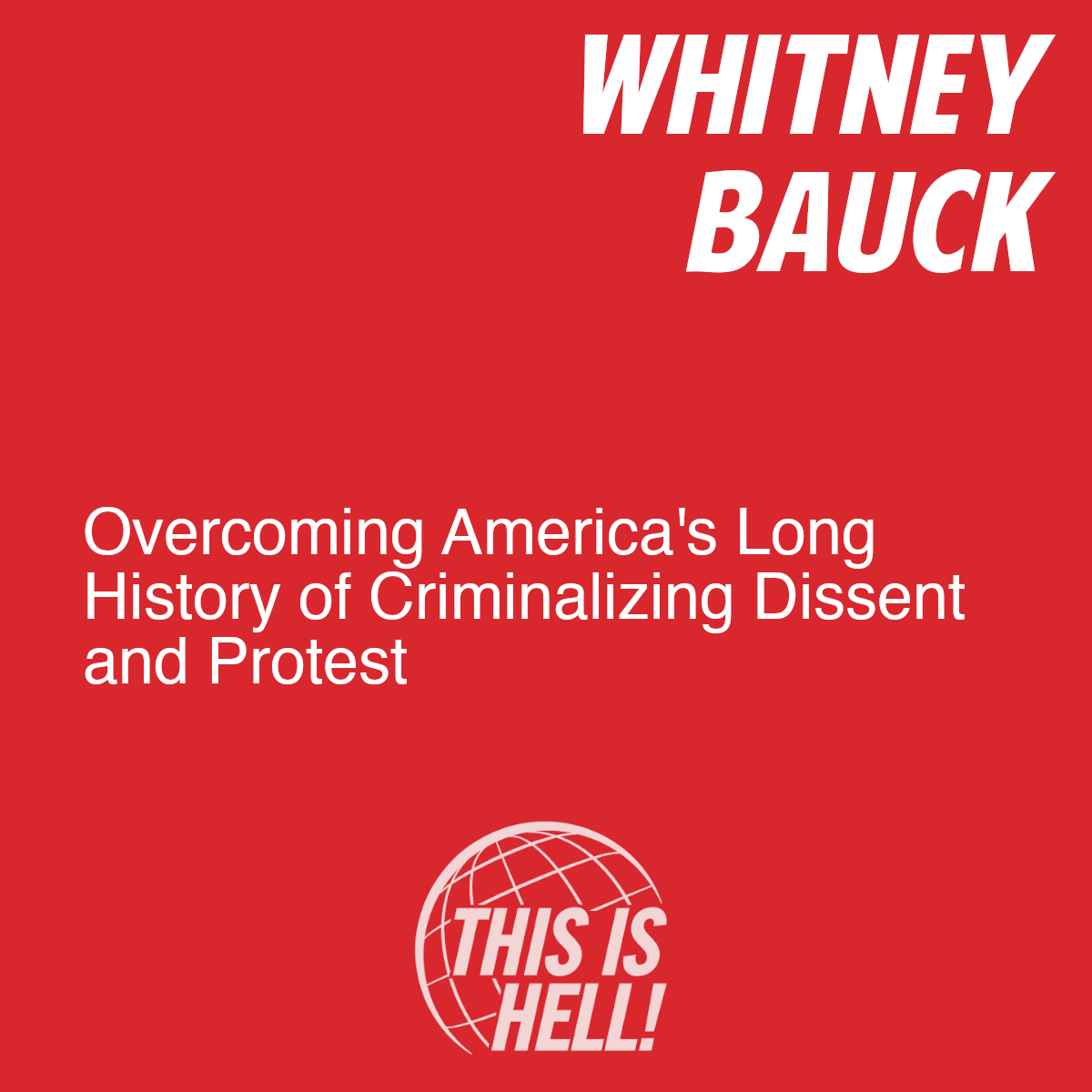Episode 1088
The price of cash bail.
Oct 29 2019

Award-winning climate and environment journalist Whitney Bauck discusses her latest at The Guardian, "The criminalizing of protest and dissent has a long history in America." Our conversation will also cover her previous posts describing "How activism is tackling the US loneliness epidemic," and "How US cities are helping each other resist ICE."
Whitney currently serves as a contributing writer for the Guardian, and previously served as print editor at the climate and culture magazine Atmos.